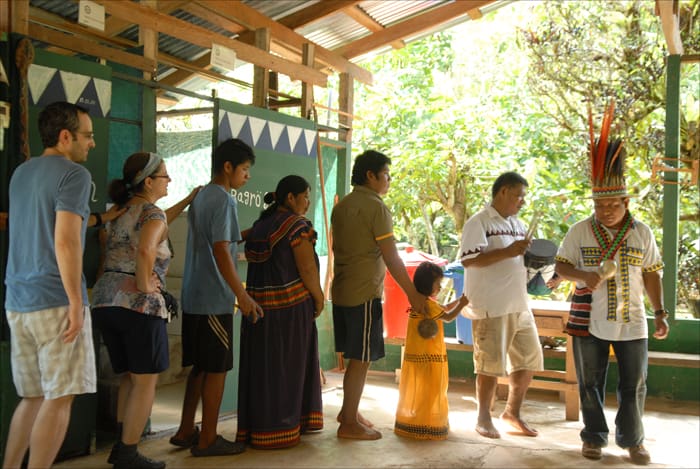Costa Rica put into effect Friday a law that recognizes the nationality of indigenous communities that are located on the country’s border.
Indigenous people living in those territories have suffered marginalization of state services due to the lack of official acknowledgement of their identities.
President Carlos Alvarado signed the law to protect the right to Costa Rican nationality for cross-border indigenous people as part of Costa Rica’s commemoration of the International Day of the World’s Indigenous Peoples.
The legislation establishes mechanisms to recognize the nationality of the Ngäbe indigenous population, comprising some 3,000 members near Costa Rica’s southern Caribbean border with Panama.
“Today we reaffirm our commitment to guarantee the right of all peoples to self-determination,” said President Alvarado when signing the law, which makes it easier for Ngäbe to have Costa Rican identity documents.
The lack of nationality has been a historical obstacle preventing indigenous people living on Costa Rica’s borders access to basic services such as healthcare, education and social assistance benefits.
At the same time, the government issued a decree that creates a database of the Broran people, in the southern area of Térraba, to facilitate the determination of their genealogical patterns and the preservation of their customs, traditions and cultural wealth.
Deputy Enrique Sánchez, promoter of the law, explained that the law was made in consultation with the indigenous populations.
“From that recognition, they will be able to access the rights associated with nationality,” Sánchez explained. “They’ll know that they won’t have any problem when they have to access [a public clinic], when they have to enroll their sons and daughters in Costa Rican schools, when they have to complete paperwork at any government institution.”
For his part, the indigenous leader Eusebio Julián stressed that the new laws are positive but “this does not cover all our needs,” citing discrimination against indigenous populations.






